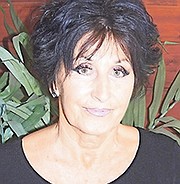By VICTORIA SARNE
The title of this column is deliberately ambiguous to enable a conversation about my two intended meanings: the necessity of so-called ‘networking’ for business purposes, and when or how it does or doesn’t work, with particular emphasis on how women perceive the use of networking.
The following viewpoint, my own, may well be controversial as it is the opposite of current conventional thinking. My personal bias as a woman who has had a diverse business background, is that (a) I really dislike the word “networking”, and (b) how it is used exclusively by women as if we collectively need some sort of special help to navigate the world of business. Perhaps in some instances we do, but I have never heard a man or a group of businessmen use that word. Yet they make connections which may come in useful in their particular line of work and call upon those contacts when appropriate, but they make them in the ordinary course of their daily lives – in a business meeting, on a golf course, at a club or organisation or at church. The same options as women have, but there’s more than one difference.
Men seem to have a better understanding or maybe it’s already programmed into a male brain because they have been the main drivers of business in that regard, that interchanges and opportunities are all around us in our personal and professional lives. And there is nothing wrong in calling upon an associate for help. In fact it’s a normal, appropriate, expected component of doing business. It’s organic and collaborative. This is how the professional world works.
I find it a naive and frankly incorrect assumption that women need specifically arranged events to bring a forced sort of socialising to connect them to other women who may or may not be of use in their working lives in the future. I am sure some connections are made at these real or social media gatherings, but far too often nothing long-term is followed through.
The business world is comprised of both men and women, with men still dominating the top positions. So if there are to be any gatherings or interactions they should be mixed – both sexes, upper and lower management and a variety of professions. That would be optimum “networking”. While I understand the premise behind such events, women helping women, in cynical mode I see the people who have the most to gain are the organisers of such events; they frequently have a financial motive.
We have, at least in this respect if not in others, the same opportunities as men in the business world. We “network” informally every day of our lives. We meet people in the normal course of our day, at work or we may go to church, belong to a tennis, golf or book club, meet other parents at our children’s school or volunteer.
Opportunities surround us, we only have to adjust the way we think about them and, most importantly, how to recognise and take advantage of a connection. We can do this without losing our integrity by forming honest associations or friendships for all sorts of random reasons and in all sorts of circumstances. By this I mean these connections can and should be sincere not just based on a cynical ‘how useful can this person be to me’ approach.
I think as women we are often still stuck in the “undeserving” or “underestimating” ourselves mindset (although that’s a subject for another time) and equate negotiating or using a connection we have made with being inadequate instead of seeing it as an opportunity and potentially a practical solution to our particular need at the time. Professional businessmen have a better grasp on interactions within working relationships; they know how to “play the game”, and if we want to join in and play in that particular sandbox, we need to learn the rules of the game and how and when it is played. Then we, too, will have an easier path to our own success and a mutually beneficial way of rising to the top or at least be on an equal footing.
• Victoria Sarne is an entrepreneur and writer. She headed a team to establish a shelter for abused women and children in Canada and was its first chairwoman. You can reach her at victoria.conversations@gmail.com, or visit www.lifelineswritingservice.com.





Comments
Use the comment form below to begin a discussion about this content.
Sign in to comment
OpenID